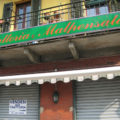Britain’s Telegraph carries an opinion piece titled If Muslim doctors are intolerant, let them go, according to which a few young Muslim medical trainees have been allowed to refuse to see female bodies or to treat alcohol-related problems, on religious grounds. Sainsbury’s, a UK grocery chain, allows its checkout staff to refuse to scan alcohol if they have religious objections, and there have apparently been cases of taxi drivers refusing passengers who were carrying alcohol.
The opinion piece decries all this – if you’re hired to do a job involving the public, you should not be allowed to discriminate among that public for any reason – and I agree.
The medical question is the most important: to what extent do doctors have a right to refuse treatment that they personally disagree with? The American fundamentalist Christian pharmacists who refuse to fill prescriptions for birth control pills are not carrying out their duty to serve the public; they are conveyors of a necessary public good, and have no right to impose their beliefs on their customers. If you can’t stand the birth control, get out of the pharmacy.
At least in America and Britain there is resistance to these attitudes and attempted practices. In Italy, we have silent acquiescence in similarly unethical behavior by Catholic medical personnel.
When my daughter’s class had (two short sessions of) sex education during her second year of high school here in Lecco, they were warned by the local family health doctor who came to teach them that, while abortion is legal in Italy (and their parents don’t even have to be involved), they would have trouble obtaining an abortion in Lecco (a very Catholic town).
Several of her friends learned the hard way that even obtaining the morning-after pill (also perfectly legal in Italy, but requiring a prescription) can be difficult. One friend went to the hospital (accompanied by her boyfriend) immediately after a condom accident to request it. The doctors and nurses in the ob/gyn department jeered at her and refused. Wandering, crying, through the halls, she eventually ran into a sympathetic doctor who exclaimed furiously “They have no right!” and wrote her the prescription. Othere friends have told Ross similar stories.
An American friend living in Tuscany (fully grown with a teenage daughter) was refused an IUD by her family doctor, on the grounds that this doctor believed the device to be an abortifacient.
The other day I had a routine gynecological exam and pap test. I’ve been thinking about the problem of long-term birth control, so I asked the doctor how one goes about getting sterilized in Italy, and how much it costs. He told me that a sterlization operation is free and easily obtained in Italy (for both sexes), but that I would not be able to do it in Lecco.
To say I was astonished is to put it mildly.
“So I’m supposed to have all the babies god sends me?” I demanded.
“No comment,” he said drily (and in English).
He said I could easily get it done in the nearby hospital of Merate: “What does it matter when you can do it just 20 km down the road?”
How about the principle of the thing? And the law? In a worst-case scenario, what if the Catholic fundamentalist attitude prevalent in Lecco were to spread? Suppose someone found herself in Lecco’s hospital in some serious condition requiring a therapeutic abortion – would they still refuse? Could they, legally? Would anyone bother to enforce the law, whatever it is? Or do we, as usual, just put up with it because “that’s the way it’s always been” and find a workaround? And who are these goddamned Catholics to tell me what to do with my body?
Some of this was old news – Pierangelo Bertoli wrote a song about it decades ago: Certi Momenti.
Oct 29, 2007: Benedict appeals to pharmacists –
“They shouldn’t have to sell ‘immoral drugs’, pope says” – And do you know what I say to the Pope? I’m sure you can figure it out…
Pope’s “morning after pill” speech criticized















